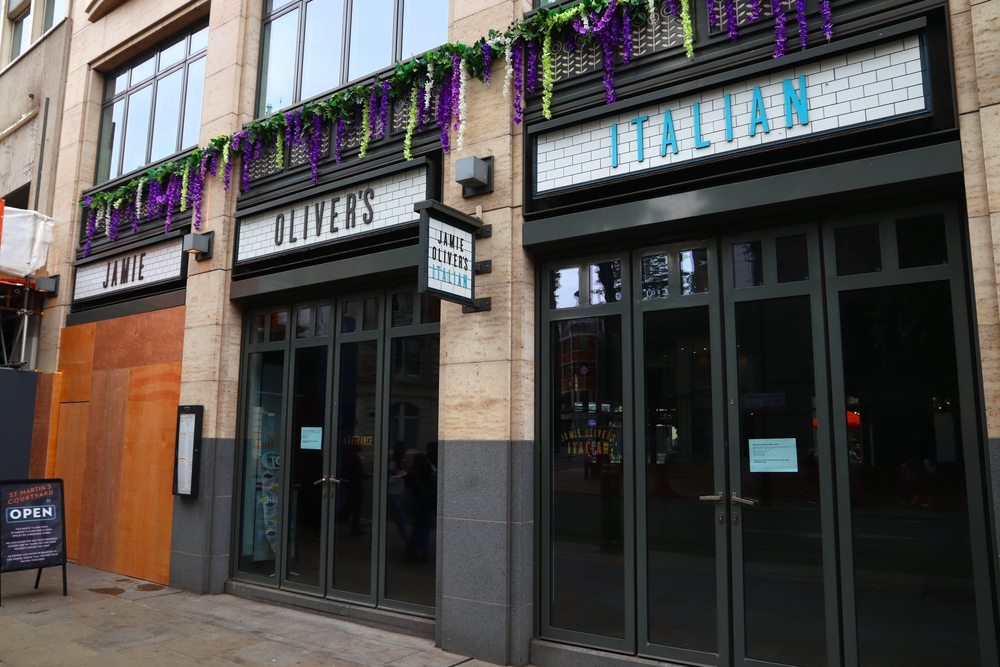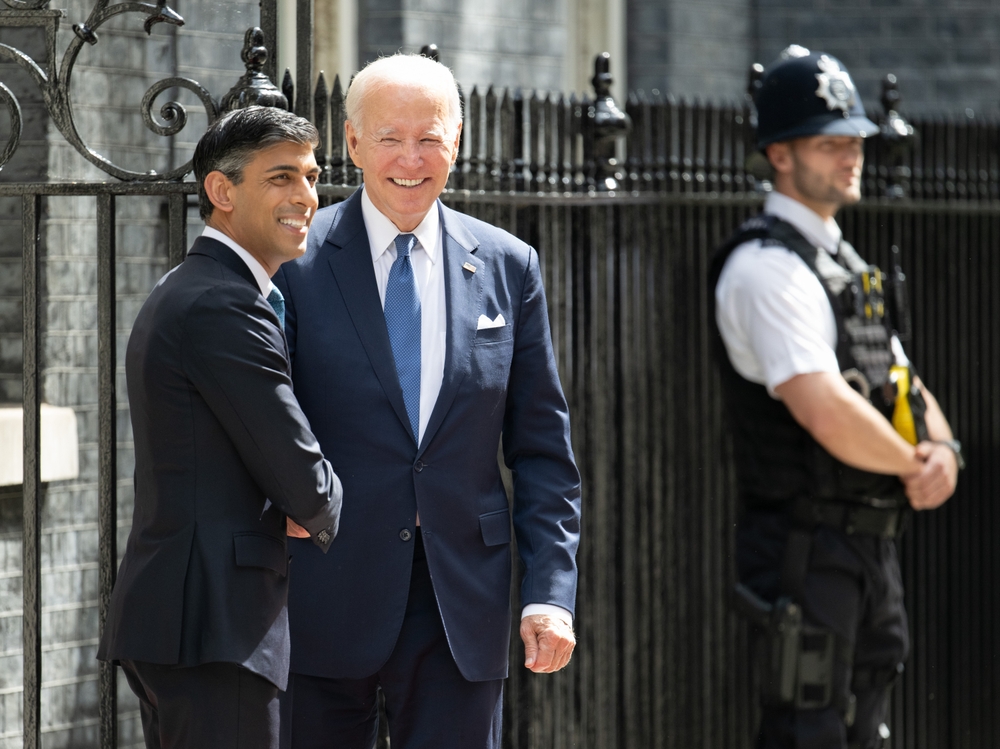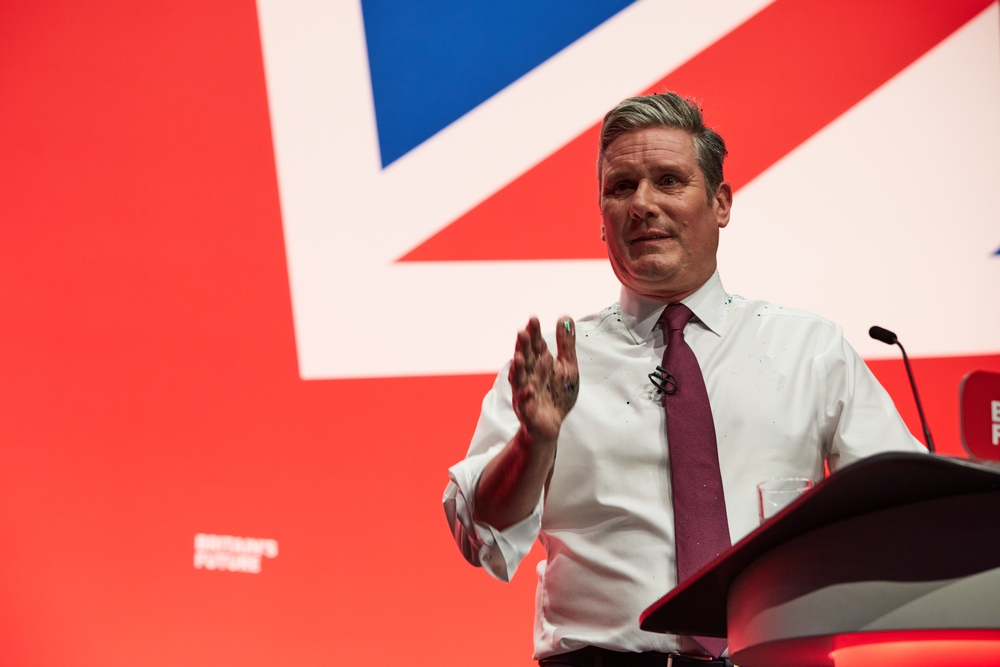
Following last month’s Transpennine tour, my latest focus groups took place in two southern seats that could be under threat from Labour if the polls stay as they are: the new seat of East Thanet in Kent, and Penny Mordaunt’s Portsmouth North. We spoke to 2019 Conservatives who put their chances of voting Tory again at less than 5 out of 10 – the people the party will need to win back if it is to recover ground before the election.
Most had noticed the row over Frank Hester’s remarks about Diane Abbott and their aftermath: “I can’t remember what he said but I remember being shocked. It was anger-making;” “We know people think that way, but to think they could say it out loud.” Many of the women in particular had clocked Abbott’s attempts to be called during the subsequent Prime Minister’s Questions: “How many times did she get up? If it had been a white male, he would have been given a soap box to stand and preach on.” A few detected more than a hint of double standards: “Diane Abbott has said racist things in the past, not least being accused of antisemitism;” “Jo Brand once said that when she heard the words Boris Johnson, the images of lamppost and rope came to mind. There was no apology from that direction;” “One of the reasons I’m still slightly sympathetic to the Tories is the lopsided way events are reported in the media.” But the prevailing view was that this was the latest example of a worrying trend: “It’s not isolated. We’re getting ourselves into a society where everyone is beginning to treat each other with disdain and distrust. There’s no respect;” “It seems like there’s no accountability for anything they do.”
It’s a lot of money for a minuscule amount of benefit.
The groups had also noticed that the Rwanda scheme was back before parliament. The groups were frustrated at the government’s apparent inability to enforce the border, which they ascribed to a combination of general incompetence and the attractiveness of the UK as a destination: “We’re a first-world country, we should have the systems in place. The processing time is too long. It’s so unorganised;” “I’m all for people coming here legally and no-one would deny a genuine refugee safe passage. But we’re an easy target – hotel, three meals a day, mobile phone, spending money. People say the country is becoming racist, but it’s because of the way we’ve been taken advantage of.” Many noted that other countries don’t seem to have the same difficulties: “In France last week they had an illegal migrant who was charged with terror offences, and as soon as he was found guilty, he was deported;” “Australia has a very good immigration policy which functions very well, which is that they don’t let them in to Australia.”
In this context, many thought the Rwanda scheme seemed a confusing and expensive way of addressing the problem: “It’s a lot of money for a limited or minuscule amount of benefit;” “Britain is skint but we’re laying all this money out to Rwanda and no-one’s even gone there yet.” Still, some were prepared to give it a go: “It’s an answer. Whether it’s the right answer or not, time will tell. We’ve got to do something different to what we’ve been doing for the last 20 or 30 years.”
Does that mean we’ll have to pay to go to the doctor’s?
A week on, few were excited about the contents of the Budget. Some who knew they had benefited from one measure suspected they would be losing elsewhere, and they doubted it would make a difference: “It was a bit like, they don’t want to do anything too bold but they felt they needed to do something. It felt a bit too much like doing things for the sake of it… They’re not addressing the problems;” “I know pensioners are unhappy because there wasn’t very much for us. It was a bit of a non-event.” Strikingly, many continued to believe that income tax and National Insurance paid for different things: “I was a bit disturbed when they said they were perhaps going to abolish National Insurance. Does that mean we’ll have to pay to go to hospital and to the doctor’s?” “It’s separate. It’s more of a social thing, the NHS, firefighting. Income tax is for everything else – running the government, benefits.”
Rishi Sunak’s claim that the economy was turning a corner and Britain was bouncing back met a sceptical response from most of our participants: “Prices aren’t going down, fuel’s not going down, the energy companies are making record profits;” “I did 26 referrals to the food bank this morning. We have kids at school with no socks on;” “Nothing is stable enough for us. We’re not in a position to bounce back until everything’s a bit more stable;” “If you’re the prime minister and one of the richest men in the country, it feels like there’s a disconnect there as well.”
He’s lost his bottle. I think he’s almost coasting.
Though few disliked Sunak, nor did they have much confidence that he would be able to turn things around: “In the beginning I really thought he was going to make a difference. But now I look and I think, what the hell is he doing?” Why, what has changed? “Well nothing’s changed, that’s the problem. We’ve had all these prime ministers, and what have they done?” “I thought he was all right at first and then it came out about his missus claiming this, that and the other, so I thought ‘another one on the take’;” “He’s lost his bottle. I think he’s almost coasting at the moment to try and eke by. You could say that’s stability, but it’s not because all you need is one big storm and you blow over.”
However, there were few takers for the idea of a new Conservative leader before the election. Such a move would amount to “more instability”, and “knowing how many prime ministers they’ve replaced, the person you vote for might not last six months.” In any case, “they haven’t got enough time left to change anything” and “the party is still the party.” For many, another new leader would simply be farcical: “They’ve been through everyone. They’re running out of people. How many leaders are we on since the election?” “They need dislodging because they’re just handing the baton on from one person to another. ‘I’m out of favour today so you take over and if you go out of favour, pass it on to her. Then who? The cleaner, have you had a go yet?’”
If patience with the Tories was running out, enthusiasm for Keir Starmer and Labour was conspicuously lacking. In particular, people were worried about Labour’s previous record on taxation, borrowing and debt, and the idea had gained ground that Starmer was weak and prone to U-turns: “He seems very feeble. He’ll say something and then he’ll retract it and pick up another idea. He doesn’t seem to follow anything through;” “He was the one who wouldn’t prosecute Jimmy Savile;” “He doesn’t have that killer instinct, he doesn’t command a room. He feels like a patsy, and he’ll get in and then they’ll put the real person in, which is probably someone like Sadiq Khan;” “He’s a bit like Theresa May. Very good at running a department of state, but that’s not the same as being prime minister, where you have to juggle a lot of different balls and control a lot of other ambitious people.”
He tries to make out like he’s a working-class lad, but he’s not.
There were also doubts about the authenticity of Starmer’s public persona: “It’s as if someone’s controlling him. You can’t get a tangible grasp on him because it’s not authentic;” “He tries to make out like he’s a working-class lad, but he’s not;” “He’s like a robot, a puppet or something;” “I don’t think I’ve ever seen him smile.” Not that any of these things was necessarily a dealbreaker for some: “It’s got to be worth a try. It’s got to be better than what we’ve had.”
No other current Labour figures had made much of an impression: “Tony Blair is on his way back again. I keep seeing him popping up, sneaking in under the carpet, through the back door or wherever he can;” “I think Claire Rayner might usurp him.”
A few had noticed Lee Anderson’s defection to Reform UK: “It’s because he knows he’s not going to get voted in on the Tory ticket. It’s cynical;” “It seems like that’s the party where all the people who can’t get their own way go to.” Most knew little about the party: “Is that George Galloway’s lot?”; “I’d want to find out more in case it turns out to be the Tories in disguise”. Some had positive views of Richard Tice (“an incredibly intelligent person”) or were keen to see a comeback for Nigel Farage (“he says what people are thinking but haven’t got the balls to say”), but none in the groups could identify the party with an issue other than immigration.
Some of our participants had made up their minds about their vote: “I think they’ve run their course;” “I’ll never vote for them again. There were only six people allowed at my dad’s funeral when he was having a party. He might be out but the party he represents is still in power and they haven’t been punished for those actions;” “It’s time for a complete renewal. Start from the beginning and have fresh blood sorting this country properly.”
For some of these former Conservatives, the paradoxical appeal of a change of government was stability: “If the Tories did get back in they’d go for a new leader and then it will be catastrophe all over again. So as much as I’m not really a Labour supporter, I feel a change of government would stabilise things;” “It feels like we’ve got alcoholic parents. Everything’s crazy and then the next morning it’s suddenly sorry and let’s go and feed the ducks. It’s not secure enough. You can’t help but love your alcoholic parents but you might want to go and live with your auntie for a bit.”
Despite their disgruntlement with the government, many were still very uncertain about their election choice: “The two leading parties, you’ve got Sir Keir Starmer and then you’ve got multi-billionaire Rishi Sunak. Neither of them have a clue what it’s like to go to Sainsbury’s. And neither did Boris, but at least Boris had a bit of balls.” Accordingly, many also thought the projected Labour landslide might well fail to appear.
There’s something missing in the middle.
Finally, this month’s daft but revealing question: if Keir Starmer were a sweet treat, what would he be? “An Easter egg, because it’s hollow inside;” “A chewy toffee because he’s malleable. In his party they chew on him for a while and he changes his mind;” “A smiley face, because he knows if he doesn’t do anything stupid or wrong it’s in the bag for him. He’s trying not to say anything that will offend anybody.”
And Rishi Sunak? “A Milky Way. It’s all right, fairly generic, it’s OK in the Celebrations, but would you buy it? Probably not;” “Licorice. The oldies love him, but the young people are like, why is that there?” “A biscuit at the bottom of the barrel. It’s just gone soft, so you ditch it;” “A party ring. There’s something missing in the middle. He comes across as a lovely person, but I saw this interview about the cost of living. She asked him about people who can’t afford bread and he said yes, it’s a really bad situation. And then she said, Rishi, what do you have on your table at home? And he said, well, we have five different types of bread because my wife likes the seeded bread, and he rattled off three or four others. He was speaking genuinely, you could tell he wasn’t lying, but that was the problem. He’d fallen down the hole.”


